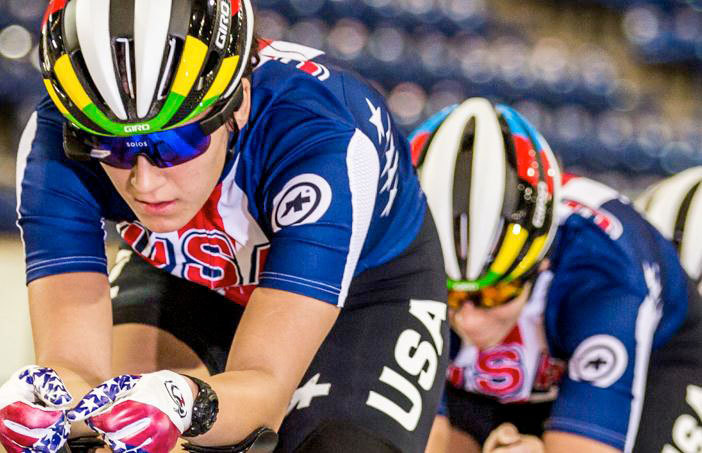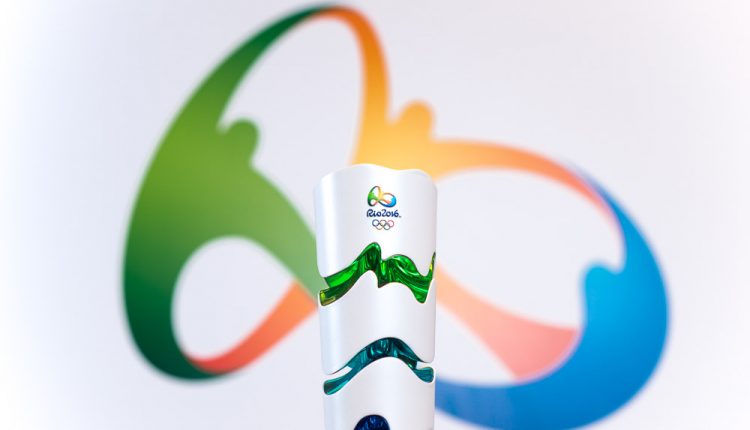Technology Will Take Hold at The Rio Olympic Games 2016
The Olympic Games – with their roots stretching way back to Ancient Greece – have seen a technological change over the years. The technology is said to be a crucial element of how people relate to the behemoth sporting event.
Though technology has brought the games deep into the future, they can go even further. This year’s Olympic Games, which will be held in Rio De Janeiro in August, will bring out more technology than ever, integrated into one of the greatest sporting competitions of all time.

Back in 2012, following the 2012 London Olympic Games, Chief Futurist for Cisco Systems, Dave Evans, made some predictions for the 2016 Olympics. Cisco is an official supporter of the Rio 2016 Olympics and Paralympics. The company provides all of the network equipment infrastructure such as fixed and mobile broadband equipment, IP routers, network security equipment, data centers and network management systems.
His predictions included:
-Use of mobile for streaming providing viewers at home with even more options
– Wearable cameras attached to glasses equipped with GPS and Wi-Fi that will allow users to choose the perspective from which they want to view an event
– Smaller, untethered cameras
-Biometric information combined with video for better training
Evans even touched on augmented reality, but predicted that would come after the 2016 Olympics and attributed the influx of data flowing through networks as a result of mobile connected devices.
And his predictions weren’t far off, possibly even an under-prediction of the technology that will be used this year.
Before the new year, a Technology Operations Center officially opened up in Rio De Janeiro, preparing to house and cater all of the innovations necessary for the upcoming Olympic Games.
The Technology Operations Centre (TOC) is the Control and Command Centre for Technology that supervises all 144 Olympic Competitions and even non-competition venues.
At the time of the Olympic Games in August, the 800 square-meter facility will monitor and control the IT systems that support the running of the Games, as well as the results from the Olympic sports competitions to the world in real-time.
“The TOC is crucial to the running of the Games, and we are delighted with how it has already supported us during the test events. It is the IT equivalent to the main stadium, from where the IT team will have the best seats to watch all the IT action during the Games to ensure the results are delivered accurately, securely and in real time to the world,” said Elly Resende, Rio 2016 Technology Director.
IT is a big part of the behind-the-scenes technology that helps to make the Olympic Games a success. The Rio 2016 Olympics will have European digital services company, Aros, running the IT show, along with partners like Omega for timekeeping, Panasonic for audio-visual equipment, and Samsung for wireless communications.
Growing Technology Over the Years
The London 2012 Olympic Games saw the first use of laser pistols and sensor equipped socks. In addition, for the first time in the Games’ history, a platform was developed for journalists in which they could access results, articles regarding competitions and statements by medalists – all from their computers. This year, journalists will benefit from Internet access onboard the press buses.
“I believe one should not innovate only for the sake of it. It is important to understand what the athletes will need, what the journalists will need and what the public will need. You must understand how these people would like to get involved in the Olympic Games. Once you have answered these questions, it is possible to understand which the right thing to do is,” said Gerry Pennel, CIO of the London Organizing Committee.
What Can We Expect?
Here are some examples of the upcoming technology we can expect to see, but this only scratches the surface.
Eyewear company Solos and the USA Cycling team have gotten together to provide the cyclists with high-tech eyewear equipped with heads-up displays for riders. The smart eyewear will provide performance data and metrics like heartrate, speed, power, and duration to maximize performance and training.

It was also revealed that VISA will supply a handful of athletes with a wearable payment ring armed with a secure chip that uses VISA Token Service to authorize transactions without using the athlete’s account information.
The Rio Olympics will also employ some smart camera technology with the help of Mark Roberts Motion Control. The robotic technology will extend the reach of photographers by hooking up a radio transmitter to various cameras that can communicate a main handheld camera when a photographer snaps a shot with one cameras, the others will be triggered too. This will provide more control over remote cameras and offer 360-degree views.
In addition to all of the athletic innovations, which include a plethora of cloud-based advancements in technology healthcare by GE, Brazil wanted to ensure city security, so it acquired aerostat-mounted wide area motion imagery (WAMI) cameras that enable real-time imaging of a city.
Not only is technology taking hold directly within the Olympic Games, but the Rio State Government presented buses that employ CNG and diesel flex technology back in 2011 in order to get the city transportation more energy efficient and sustainable for the upcoming events.
At the end of May, the city received a fleet of high-tech trams that will cut travel times for commuters and visitors and reduce car traffic in light of the games. The 17-mile network will transport an estimated 300,000 people per day.
The Rio 2016 Olympics will be streamed on NBCOlympics,com and the NBC Sports Live Extra App.
The Olympics will also – for the first time – include the distribution of 4K Ultra HD coverage to cable, satellite, telco providers, and other partners.
“Since the London Games, OBS and NHK have been working together, experimenting on the future standard of 8K. Substantial recent technological advancements have allowed us to pursue this opportunity further for the Rio Games and to offer a 4K feed for a number of sports, down-converted from the original 8K, to NBC and other interested Rights Holding Broadcasters around the globe,” said Yiannis Exarchos, OBS CEO.
4K UHD technology displays images at over eight million pixels, providing pictures with a resolution at almost four times that of ordinary HD.
The Olympics also provide companies an opportunity to capitalize and create technology-related applications by developing specialized mobile apps geared toward the Olympic Games for their products.
If we’re looking for a technology “trend,” I think we’ve found one within the greatest sporting event of all time. As sporting and athletic-wear companies continue to grant their products a high-tech upgrade, they can find their way into real-world sporting events.


Comments are closed, but trackbacks and pingbacks are open.